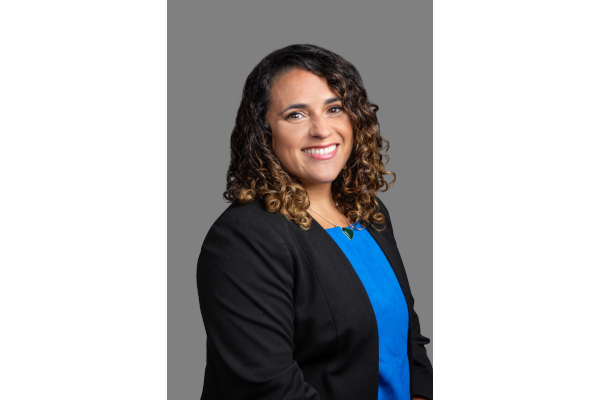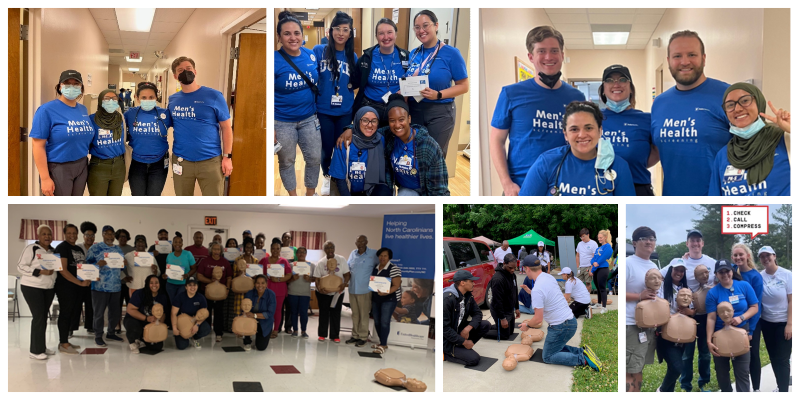First Year Student Blog: Adriana DaCosta

“Hola mi nombre es Adriana, y hoy le voy a medir su peso y estatura y tambien su precsion,” I say to one of many men who had not seen a doctor in years but came to the free event. This is how many of my conversations began at the Duke Cancer Institute’s Men’s Health Screening Event.
“165/95, that’s a bit elevated,” I say to the patient, a gentleman in his 50s, after checking his blood pressure.
In Spanish, he tells me he’s nervous since he’s “never really seen a doctor.”
I tell him, “Well, the good news is that I’m no doctor.”
His clothes are slightly dirty from a morning at work, so I offer him a chance to relax before I take another measurement.
“172/95; looks like it’s still elevated; let me give you some information on what this means for you,” I say, and begin to briefly explain some of the things a doctor will talk to him about regarding lifestyle changes. I let him know that they may prescribe medications for him.
He begins to tear up. I gently put a hand on him, sit with him, and tell him that it’s ok. The good news is that this is one data point and that we are catching it now, and he has many options that he can discuss with a doctor concerning lifestyle and medication modifications.
He tells me that he used to play fútbol all the time but stopped playing due to age and injuries, I tell him that he doesn’t have to play fútbol again, but it may be time to pick up fútbol-like drills again for his health and that 150 minutes of moderate exercise will be good for him. He thanks me for discussing this with him, and I tell him they’ll provide a referral for him before he leaves. I then guide him to the prostate informed-decision-making station and let him know that the next stations will be the PSA station, the colorectal station, diabetes screening, nutrition information, digital exam, and skin cancer screening. I let him know that he can go to or decline any of the stations.
This was one of many interactions my classmates and I had at the Duke Cancer Institute’s Men’s Health Screening Event, an event aimed at screening men in the community. This two-day, ten-hour event was held at the Lincoln Community Center and Duke Croasdaile. It was one of a few events the Duke Physician Assistant (PA) Program students have participated in that focus on health equity and bringing significant health services to historically marginalized and underserved communities.
Over the summer semester, Duke PA students have also been actively involved in teaching hands-only CPR in conjunction with Community Health Coalition. The CPR class aims to teach hands-only CPR to Black and Hispanic communities to increase rates of bystander CPR within these communities.
What began as the Duke PA students teaching at a health fair block party turned into CPR classes taught by Duke PA students thanks to the partnership with Community Health Coalition. To date, Duke PA students have taught hands-only CPR to more than 70 adults from historically marginalized and underserved communities and aim to teach more hands-only CPR courses throughout the year. Being out in the community has been such a wonderful and rewarding experience for my classmates and me; we have all been recharged, and we are grateful for the opportunities given to us through these partnerships. Seeing minority patients who have previously not been proactive with their health care be vulnerable and raw with us has deepened the mission for many of us to provide services to these communities.

Adriana DaCosta is a first-year student with the Duke Physician Assistant Program. Email adriana.dacosta@duke.edu with questions.
Editor’s note: Duke Physician Assistant Program students blog monthly. Blogs represent the opinion of the author, not the Duke Physician Assistant Program, the Department of Family Medicine and Community Health, or Duke University.